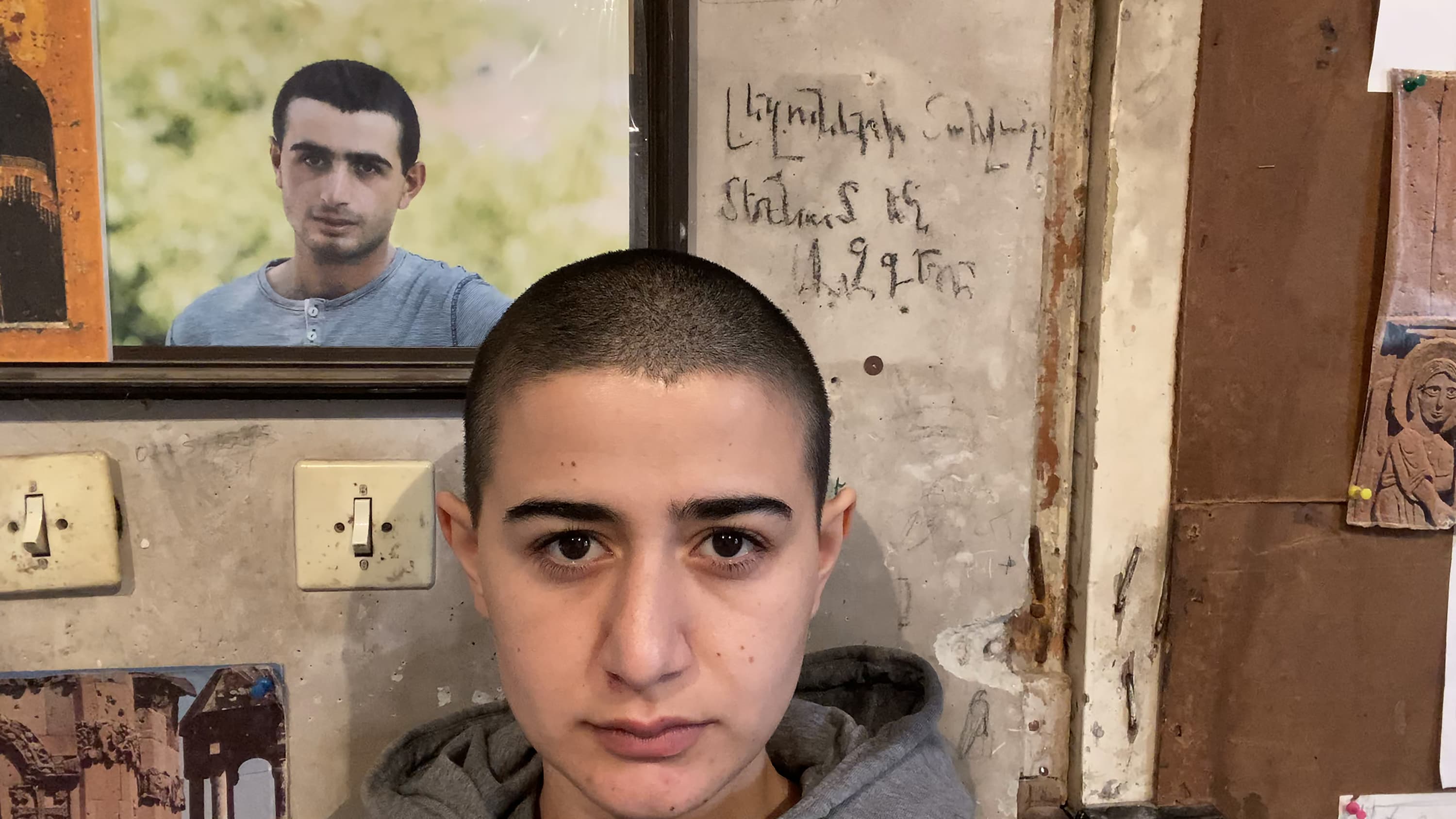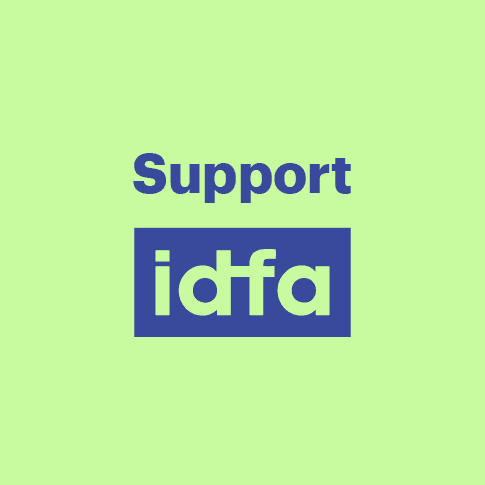
1489 director Shoghakat Vardanyan on trusting her gut
In conversation at the festival's industry headquarters Felix Meritis, the burgeoning filmmaker opens up about her personal, intimate, and heard-earned debut feature-length documentary.
In conversation at the festival's industry headquarters Felix Meritis, the burgeoning filmmaker opens up about her personal, intimate, and heard-earned debut feature-length documentary.
Thirty-year-old Armenian director Shoghakat Vardanyan grew up in an artistic family, with a sculptor and painter father, artist mother and musician brother, but she had never thought that she would make a film. A professional pianist, Vardanyan enrolled in a journalism school in Yerevan in September 2020. 27 days later, the Third Artsakh (Nagorno-Karabakh) War started. Her 21-year-old brother Soghomon, who was in mandatory military service at the time, soon went missing.
She began documenting her and family's process of searching for Soghomon and living through the pain of uncertainty. Three years later, Vardanyan emerged with 1489, her first feature film and, now, the winner of the IDFA Award for Best Film in the International Competition, as well as the FIPRESCI Award. The number in the film's title refers to the anonymous digits assigned to a “body of an individual missing in action.”
"I was trying to find Soghomon for two weeks. I was going and opening every door in every hospital," Vardanyan recalls. "And it was a crazy situation: nobody minded when I was opening these rooms, because everybody was running around in this chaos. I saw many soldiers’ burns and injuries, and I understood that I wasn't going to get any news from him or about him. I couldn't concentrate on my journalism lessons anymore."
Sensitivity and instinct
Her journalism professor urged her to use a smartphone to document her search for her brother, perhaps in the form of a video blog. Vardanyan tried to follow the professor’s instructions, but she didn’t like what she was able to produce with a tripod and the smartphone.
"But then, on the third day, I went into my father's studio, and he was talking, and I felt something” she recalls. “At the time I didn't know what it was that I felt, but I started filming him with my phone, and later when I watched this footage, I realized that I had found what I needed to do. From then on, I understood better how to do it, but I was still thinking that my brother would come back, and I would just show him these videos. But then it all became too big."
Even though she didn't go to film school, Vardanyan's sensitivity and instinct led her through the making of her very personal and very painful film. When asked about her visual language, she simply says, "I was always choosing to trust my gut and hands. Sometimes I would think to use a particular angle or method because I saw it done in a movie, but my hands were taking me where I needed to go."
Tactility was a big part of the director's approach, harking back to her family’s background as artists who all worked with their hands. A particularly poignant scene sees her father catching a bird who flew into their house, and gently petting it before setting it free.
After two years of making the film, Vardanyan met the famous Russian director Marina Razbejkina, who became a creative producer on the film, and the Armenian documentary filmmaker and cultural critic Davit Stepanyan, who became the editing consultant.
"I didn't have a producer because every producer I spoke to wanted to change the film in some way," she admits. "I first worked with an editor while this was still meant to be a kind of reportage rather than a film for school, as I was urged by my professors to finish it quickly. But I didn't feel it was finished. I knew I had to wait for something more to happen; I just didn't know what. But then, after another year and a half, something crucial did happen. I worked with another editor with whom I polished [the film] into what ended up on IDFA's screens."
There is no musical score in the film at all, despite Vardanyan and her brother's education and passion. "I had a feeling that music was going to crash into this reality and break it," she says. "Because what I was trying to do in the whole process of working on the film, was just listen and read the material that came from reality."
Political influence
The film was made with hardly any funding, even though Vardanyan received a financial prize from the Armenian prime minister after a work-in-progress screening. But she refused the money.
"I said no because I didn't want any political aspect to influence or color this film in any way. Frankly I really don't know what I think about the government, but I felt this was the right thing to do. I wouldn’t take a prize from any Armenian government we've had after I was born. I made this film for the people who are still held in captivity, and for all the families who lost somebody. It is emotionally a very difficult film, but maybe watching it can be therapeutic for them. Maybe I'm wrong, but this is what I was telling myself when I was working on it, maybe in order to push myself to continue work."
Vardanyan is hoping the film will get distributed as widely as possible, and when asked if she will continue making films, she says: "I don't know. Nobody knows that. I would like to make movies, but I don't know what is going to happen in the future. The only thing that I know for sure is that, whatever happens, I will find something that is really interesting for me, and I will give all of myself to it."
